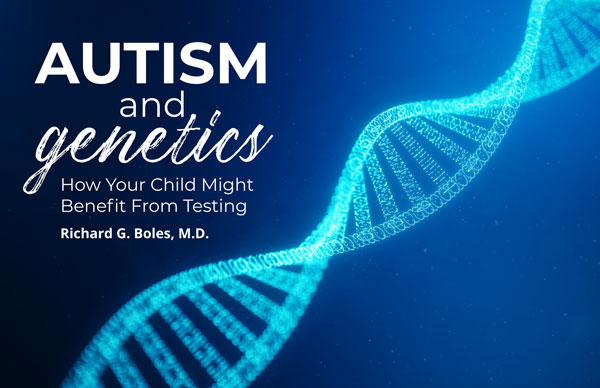Printed courtesy of Autism Advocate Magazine…
By Richard Boles, MD, Director of Neurogenomics at NeurAbilities Healthcare
This article is derived from the following work: Kreiman, B.L., Boles, R.G. State of the Art of Genetic Testing for Patients With Autism: A Practical Guide for Clinicians. Seminars in Pediatric Neurology. Volume 34, July 2020, 100804 https://www.sciencedirect.com/science/article/pii/S1071909120300103
Autism Spectrum Disorder and Genetics
Autism is a common condition that is defined based on behavioral observation. In essence, the term “autism” is applied when there is substantial impairment in social communication with onset in early childhood. Intelligence can be low, normal or high, as long as social communication skills fall far below that of other cognitive, or thinking skills. Specific behavioral criteria are used to determine the presence or absence of the diagnosis, regardless of the underlying biology. Thus defined, and given the incredible complexity of the human brain, it is not surprising that hundreds of known factors can result in autism. In this regard, autism is not an exception since many other common brain disorders, including migraine, epilepsy, schizophrenia, intellectual disability and depression, are also defined based on specific diagnostic criteria based primarily on simple observation. Indeed, multiple factors can lead to each of these conditions.




